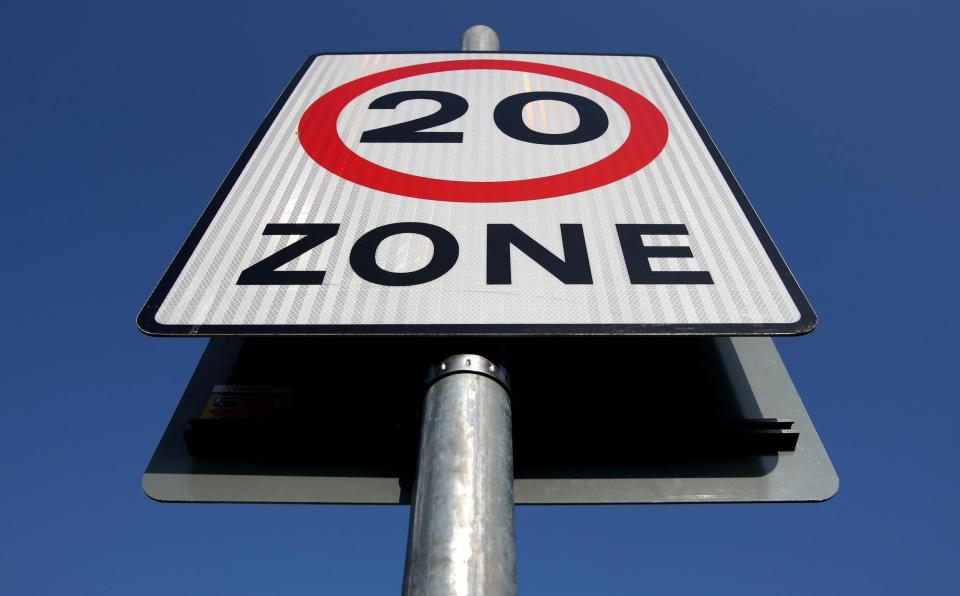The Reader: Slow down... 20mph might not be the answer

“Kill your speed, not the planet” was the maxim suggested by reader Allan Ramsay. While I applaud the sentiment behind his comment as it would apply to motorway driving, in urban areas the reverse can be true.
Motorised vehicles work most efficiently in higher gears. Hence, with the spread of blanket 20mph limits in London, even on A-roads, a vehicle may not only be on the road for 50 per cent longer than in a 30mph limit but will be more polluting for a given journey due to extended use of lower gears.
Roger Nicholls
Allan Ramsay is right to say that car dependency is a threat to our future on the planet, but wrong to say that reducing speed cuts fuel use.
We need to re-engineer and repower cars so that they are clean and fuel-efficient at speeds lower than the 50mph that is the current optimum for both electric vehicles and diesel/petrol. In fact a 50mph speed limit would be the greatest incentive for the switch to electric vehicles, by removing much of the competitive advantage enjoyed by the internal combustion engine.
Daniel Scharf
Editor's reply
Dear Roger and Daniel
The facts are these: 2,881 people were killed or seriously injured in road collisions in London between January and September this year. This is 126 fewer than the same period last year, but let’s not celebrate: there have still been more than 100 road deaths. Barring a miracle, the faster the vehicle, the more serious the injury.
While mayor, Boris Johnson adopted a policy of “smoothing traffic flow”, believing that by reducing delays he would also reduce pollution. Sadiq Khan seeks to remove more polluting vehicles entirely by charging them to enter central London.
Drivers don’t achieve average speeds of 30mph in London, let alone 50mph. Between 2008-18, speeds have fallen from 8.7mph to 7.1mph in central London. Driving faster in the hope of “saving the planet” needs careful consideration of more immediate consequences.
Ross Lydall, Health Editor
Labour’s internet is for the people
Your editorial comment on Labour’s plan to provide every household with free full-fibre internet access by 2030 [“A nationalisation plan that would harm us all, November 15] failed to mention that up until the Eighties, British Telecom, as a nationalised industry, was owned by the British people.
The new proposal is therefore restoring a situation that embraced equality, fairness, social justice and the common good. We shall see on December 12 whether the people value these virtues or are happy to put up with the rich and powerful continuing to acquire an ever growing share of the national wealth.
John Berridge
Andrew must give FBI a statement
Prince Andrew’s performance in his BBC interview with Emily Maitlis does not appear to have impressed many. The only way forward must now be for him to submit a sworn statement on the issues at stake related to convicted sex offender Jeffrey Epstein.
For many of us, the Prince’s performance will strengthen the case for a slimmed-down monarchy.
Andrew McLuskey
Perhaps the Duke of York believes, like politicians, that he can just look into the camera, tell porkies and people will believe him.
Tony Howarth
Prince Andrew gave a convincing BBC interview over his ill-starred relationship with Jeffrey Epstein. However, to cement his apparent integrity, he should also give a sworn deposition to the FBI to answer all their relevant questions.
Misguided loyalty should not stop Prince Andrew assisting the authorities with their enquiries into crimes of an abhorrent nature.
Dominic Shelmerdine

 Yahoo News
Yahoo News 